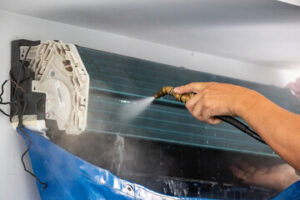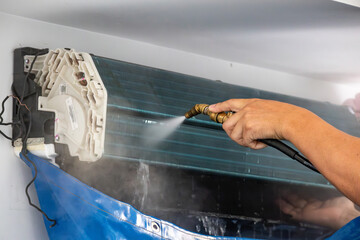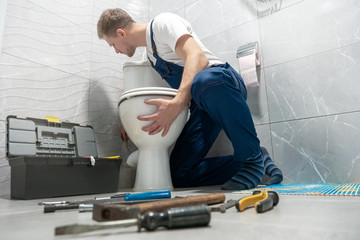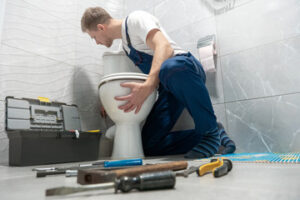A broken air conditioner can cause more damage over time, leading to expensive parts replacement and system overhaul. AC Repair Round Rock TX specialist can restore your unit to working order and prevent future issues.
Check and tighten electrical connections to reduce fire hazards. Maintenance also includes cleaning critical components like the evaporator coil, drain line and air filters to prevent clogs and improve performance.
If you’re looking to save money and extend the lifespan of your AC unit, routine maintenance is a great place to start. By addressing issues like refrigerant leaks or airflow restrictions, AC repair professionals can help keep your system running in tip-top shape and cool your home for years to come.
In addition to checking the temperature control, air filters and outdoor unit, a professional AC repair contractor can also help you make smart choices when it comes to energy efficiency. For example, if you’re considering upgrading to a smart thermostat, they can ensure your current system is compatible with the technology and offer advice on how to get the most out of your new investment.
While some troubleshooting tasks can be handled on your own, it’s always better to leave the most complex AC problems to professionals. Attempting to fix complicated issues yourself could lead to more damage and higher repair costs. Plus, hiring a licensed contractor to do the work for you means that you don’t have to worry about tampering with your equipment or causing an unsafe condition.
AC technicians can also help you reduce humidity levels in your home, which helps ensure a comfortable indoor environment. They can perform a moisture survey, determine the source of the problem and provide recommendations for correcting it. Lastly, they can help you choose the right type of air filter to ensure your system is working efficiently.
Besides fixing issues, AC repair professionals can also help you remove unwanted pests. It’s common for rodents, insects and other creatures to nest in ductwork, fans or AC units. Not only can these pests be dangerous to your health, but they can also damage your system. An AC repair technician can check your ducts and exterior units for signs of infestation, then clean or replace the contaminated parts to keep you, your family and pets safe and healthy.
Most manufacturers require regular servicing to keep your warranty valid. This means that if you skip regular maintenance, your warranty may not cover any repairs or replacements for the unit. Moreover, an infrequent service can result in inaccurate temperature readings and reduced performance. Regular maintenance also helps you keep your cooling bills low, which can save you a lot of money in the long run.
Save Time
A professional can spot issues like an inefficient AC that is wasting energy, and provide the needed repair quickly. This helps you save money and avoid unexpected breakdowns and costly replacements.
When you are trying to fix your AC yourself, it can be easy to miss or misinterpret problems. This can lead to long-term damage or even a complete system failure. Attempting DIY repairs may also void your warranty, as many manufacturers require regular maintenance to keep the warranty valid.
Taking the time to hire an experienced technician can help ensure you have reliable and safe air conditioning for years to come.
Thermostat Issues: The thermostat is the control center that sends a signal to your compressor to begin working. If it malfunctions, the refrigerant won’t be compressed and cooled to remove heat from the home. Symptoms include strange noises or the thermostat shutting itself off regularly. During a maintenance visit, a professional can check the thermostat to ensure it is functioning properly.
Unpleasant Smells: Odd smells coming from your AC unit can be a sign of mold growth inside the unit or ductwork. This can be due to a number of reasons, including low airflow, high humidity, or improper unit sizing. If left unchecked, mold can grow to the point where it is causing health issues for your family or employees. Professional AC technicians can clean your vents and inspect your ductwork to identify and correct these issues.
Inefficient Airflow: An inefficient AC that is overworked to reach your desired temperature can end up costing you more than it should each month. A professional can inspect your air conditioner and replace filters, and also check on other components of the unit that may be causing inefficient cooling.
In addition to helping you save on energy bills, timely AC repair services can extend the lifespan of your equipment. This reduces the need for expensive repairs or replacements, and ensures your air conditioner continues to efficiently regulate indoor temperatures. This leads to significant financial savings over time!
Save Money
When the temperatures soar, there’s nothing better than walking into a cool home. Air conditioning is a modern convenience that many of us take for granted until it stops working properly. Keeping your AC unit in tip-top shape is one of the best ways to avoid expensive repairs and replacement costs down the road.
While you can do some minor maintenance tasks yourself, there are certain issues that require professional attention. AC repair services can help you save money on energy bills, reduce repair costs, and even extend the lifespan of your unit.
Air Filters
An obstructed air filter forces your system to work harder, increasing stress and wear. Regularly replacing and cleaning your air filters will prevent this from happening, saving you money on energy bills.
Clogged Drain Lines
The drain line for your condenser unit can become clogged with algae, mold, or debris over time. Professional technicians can inspect, clean, and flush your drain line to eliminate these problems and prevent costly water damage.
Unusual Sounds
Weird noises like squealing or grinding are warning signs that something is wrong with your AC unit. Professionals can check and lubricate critical components to reduce friction and prevent them from breaking down.
Short Cycling
Frequent short cycles can indicate a thermostat problem, dirty evaporator coils, low refrigerant levels, or other issues. A technician can help you identify the problem and make sure it’s repaired before your unit fails completely.
Increased Humidity
Excessive humidity can be a sign of an AC unit that’s struggling to dehumidify your home, or improper unit sizing. A professional can inspect and test your unit to find the source of the issue and make any necessary adjustments.
Hiring a professional to perform AC repair is a wise investment. An experienced technician can save you money on energy bills, prevent expensive repairs, and ensure your system is running safely and efficiently for years to come. When you need AC repair, call the professionals at Naples Comfort Systems. We’ll get you back up and running fast, so you can enjoy your summer without worrying about your comfort!
Peace of Mind
A well-maintained AC system regulates indoor temperatures and ensures comfort during hot summer days. In addition, regular maintenance helps prevent minor issues from escalating into major problems. This can save homeowners and businesses money on energy bills, repair costs, and potential replacement costs.
Performing DIY repairs can be risky, especially for those who are unfamiliar with air conditioning systems. If you attempt to fix an AC unit without proper training, you may damage the system or even cause other problems. If you notice a strange smell, squealing noises, or leaking water around the AC unit, it’s important to call in a professional right away. A trained technician can quickly identify the problem and make the necessary repairs to restore your home or office’s comfort.
Over time, wear and tear on AC components can reduce efficiency. This requires your system to work harder and consume more energy to reach the desired temperature. Regular AC repair helps address inefficiencies like dirty evaporator coils, clogged air filters, and faulty thermostats. By improving your energy efficiency, you can lower your utility bills and minimize your environmental impact.
Air conditioner repair services also help improve indoor air quality. Dirty air filters, clogged ducts, and other problems can restrict air flow and allow dust, allergens, and other pollutants into your home. These contaminants can trigger allergies, asthma, and other health problems. By repairing your air conditioning unit and keeping your filters clean, you can enjoy better indoor air quality and promote a healthier environment for your family and guests.
Performing regular air conditioning maintenance is essential to protecting your investment and ensuring optimal performance. The upfront cost of AC repair services is offset by the long-term savings on your energy bill and the peace of mind from knowing your equipment is being taken care of by a qualified technician. In fact, some manufacturers require regular maintenance to keep your warranty valid.



